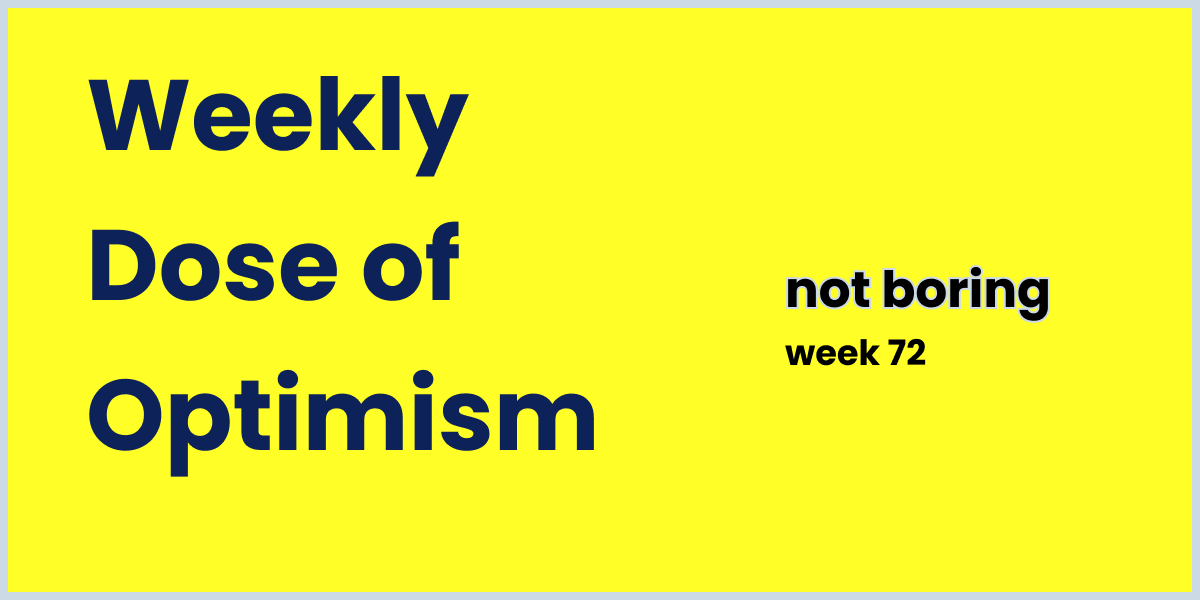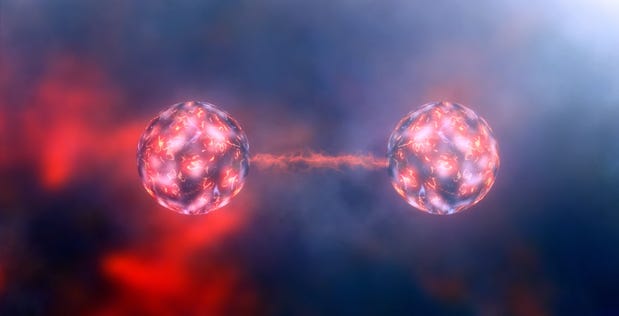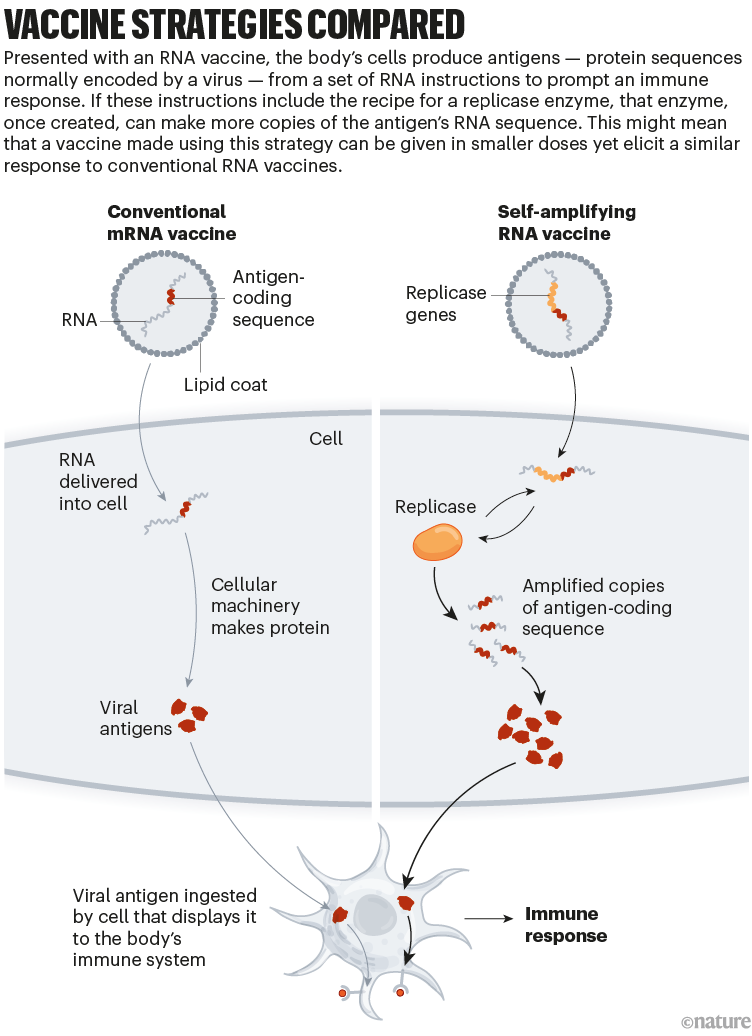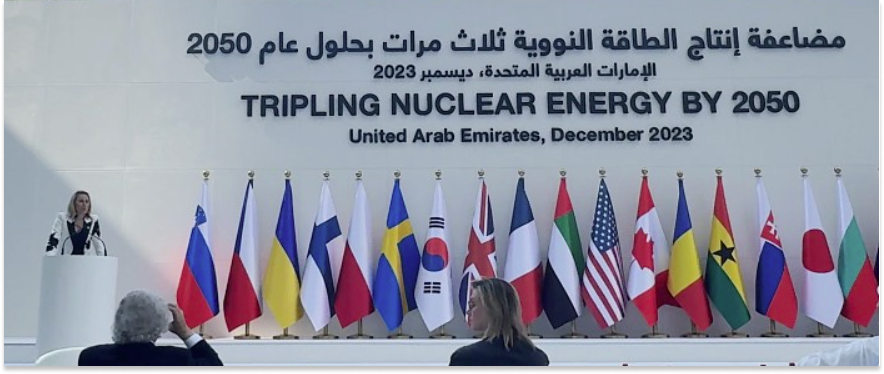Not Boring by Packy McCormick - Weekly Dose of Optimism #72
Hi friends 👋, Happy Friday and welcome back to our 72nd Weekly Dose of Optimism. We’re feeling optimistic over here at Not Boring HQ — maybe it’s the holiday spirit or maybe it’s the constant drip of world-changing, positive news we keep on getting to share with you each week. Either way, we’ll take it. Let’s get to it. The Weekly Dose is brought to you by…Alto Alto allows individuals to invest in alternative assets with their retirement funds through a self-directed IRA. It’s perfect for long-term investors in crypto, fine art, real estate, private credit that want to significantly reduce their tax burden in the future. Here’s an example of how investing with a Roth IRA can reduce your future tax burden: Let's say you make a $10,000 investment in an asset with a Roth IRA. By the time you're 59 and a half, that investment has increased in value to $100,000. If you invested with non-qualified cash, you could pay up to 20% in capital gains taxes over the lifetime of this investment, meaning up to $18,000 of potential gains is lost to taxes. The Roth IRA allows you to potentially avoid the entire tax liability, meaning $0 on the gains is lost to taxes. Of course, IRA rules and regulations apply, and you should seek advice from a tax professional when making investments. Alto makes investing in alts with a Roth IRA easy. Even better, Alto just launched Alto Marketplace, a capital raise platform that connects individual accredited investors to leading funds and exclusive opportunities.
(1) Introducing Gemini: our largest and most capable AI model From Google
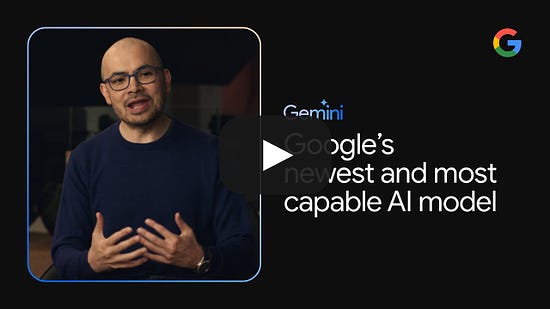 Google launched Gemini, its newest and most advanced AI model yet. The model is natively multimodal, meaning it can pretty seamlessly operate against text, code, audio, image and video and it’s highly performant, beating GPT4 on both text and multimodal performance benchmarks. (To be fair, as others have noted, it uses a different method than GPT-4 in the benchmark (CoT32 vs. 5-shot, respectively, and the video is not as one-shot as it seems and relied on more sophisticated prompts than the ones shown in the video.) But still! In Gemini, we have the (pretty advanced!) beginnings of an AI model that you could imagine weaving its way into how we go about daily life. It’s not just a text summarizer or image identifier (although it does those things better than any model in the world.) It’s a cohesive model that you could easily imagine enhancing all of Google’s existing core products, but, perhaps more importantly, powering a whole new suite of more immersive future products. Perhaps all Google Glass needed was Gemini. From an industry perspective, this was a pretty strong move from Google. It wasn’t around some planned Demo Day, nor was it an overly reactive response to an OpenAI breakthrough. In my opinion, Google frankly didn’t need to launch Gemini yet. But it did — reminding all of its competitors that they’re still Google and, likely, the leader in AI. This will, of course, prompt some kind of response from OpenAI or Meta or Anthropic over the next couple of weeks, which will in turn pull up some previously scheduled advancement from Google. This is acceleration. One fun fact about Gemini: Google co-founder Sergei Brin was a core contributor on the technical paper behind Gemini. My man is worth over $100B and still cooking in the lab! (h/t @linasbeliunas for the find) (2) DARPA-Funded Research Leads to Quantum Computing Breakthrough From DARPA
DARPA researchers have developed quantum circuits that utilize logical quantum bits (qubits), which are essential for fault-tolerant quantum computing. Logical qubits differ from physical qubits in that they are error-corrected and can maintain their quantum state more reliably. Quantum computing is generally error-prone due to the delicate nature of qubits. Unlike the classical bits we use in regular computers, which are either 0 or 1, qubits can exist in multiple states at once. This makes them both incredibly powerful for certain computations and very sensitive to their environment. On Moment of Zen, Guillaume Verdon/BasedBeffJezos said that error correction uses up ~99.9999% of the computing resources in a quantum computer. Logical qubits help solve this error issue by grouping together multiple physical qubits to create a more stable and error-resistant unit, allowing for corrections of errors that occur in individual qubits. Creating logical qubits is a big step in quantum computing because it not only addresses that fundamental challenge of error correction but also paves the way for more efficient and scalable quantum computing architectures — so we can tackle the really big problems! (3) Thalamic deep brain stimulation in traumatic brain injury: a phase 1, randomized feasibility study From Nature
A promising study showed that electrode brain implants improved cognitive function on a group of five people that suffered from traumatic brain injury. Over 5 million people in the US alone are permanently disabled from a traumatic brain injury and there hasn’t been much in the way of promising therapies. Dr. Schiff and his team identified the central lateral nucleus as a key hub for attention and cognitive functions and hypothesized that stimulating this area with electronodes could help improve cognitive function. The sample size (only 6 participants) was small, but it appears Dr. Schiff’s hypothesis is correct. It’ll be exciting to watch companies like Neuralink (and its competitors) race to commercialize the research behind these types of studies over the coming years, to bring a bit of relief to folks suffering from brain damage. (4) Self-copying RNA vaccine wins first full approval: what’s next? Elie Dolgin for Nature
Much has been written about mRNA’s 20 year path to real-world applicability during the Covid pandemic. But that’s likely just the beginning of RNA’s story when it comes to how to develop medicines and treat diseases. ARCT-154, a covid vaccine recently approved in Japan, became the first 'self-amplifying' RNA (saRNA) drug ever approved. saRNA technology represents a significant advancement over conventional mRNA vaccines, offering potentially stronger and longer-lasting immune responses with lower doses. For example, ARCT-154 requires one-tenth to one-sixth as much vaccine per person as other RNA-based COVID-19 booster jabs — leading to lower production costs and less side effects. Yes, the first vaccine is a Covid vaccine, but the technology opens the door to more versatile and efficient treatments for everything from the common flu to cancer. (5) Colonizing Mars isn't a rocket problem Elliot Hershberg for Century of Bio
Our friend and Not Boring Biotech Partner Elliot Hershberg explores the landscape of biotech-enabled sustainable space exploration. He breaks down ideas like:
and provided a techno-economic analysis for space biomanufacturing. In Elliot’s view, colonizing Mars and deep space exploration is as much as biotech problem as it is a rocket problem. Seems like the rocket problem is well on its way to being covered — thanks Elon — but we’ll need a whole new class of optimistic biotechnologists to make sure we know how to biologically survive and thrive once we get to Mars and beyond. BONUS: Age of Miracles, Episode 8: The Fusion Marathon 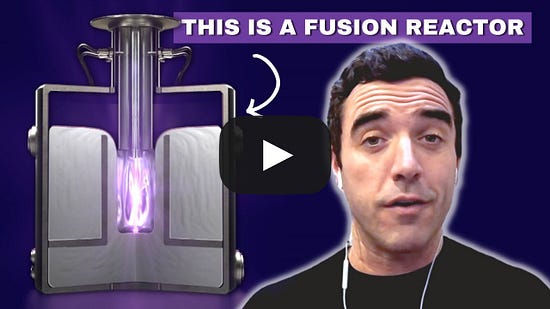 Packy here. There’s a joke that fusion is always 30 years away. That joke is no longer true. It’s going to be here within a decade. While we still don’t have commercial fusion after 80 years of research and development, the main metric in fusion - the triple-product - has actually been improving faster than Moore’s Law since the 1970s. It’s grown by five orders of magnitude! In this episode, we get you ready for the coming fusion boom by explaining how fusion works, exploring the different approaches physicists have pursued since the 1950s, and cover the history of the multi-decade international race to create energy the same way stars do. You can listen on Spotify, Apple, YouTube, or wherever you listen to podcasts. Enjoy! P.S. A couple of weeks ago, we highlighted Bloomberg’s reporting that the US was leading a group of nations in a commitment to triple nuclear capacity by 2050 at the COP28 Climate Summit. It happened! More than 20 countries launched the Declaration to Triple Nuclear Energy. The Declaration covers a bunch of the things we’ve discussed on Age of Miracles:
Big win for nuclear, and if they follow through, for the world. That’s all for this week. If you have some time this weekend, check out Alto. We’ll be back in your inbox on Tuesday. Thanks for reading, Dan + Packy |
Older messages
The Morality of Having Kids in a Magical, Maybe Simulated World
Wednesday, December 6, 2023
Why the Climate Crisis May Be Proof We're In a Simulation
Weekly Dose of Optimism #71
Friday, December 1, 2023
GLP-1s, Loyal, Material Discovery, Fervo,AI Optimism, Energy
Narrative Tug-of-War
Tuesday, November 28, 2023
How to read EA v. e/acc
Weekly Dose of Optimism #70
Friday, November 24, 2023
Ceasefire, Q*, Deep learning Cancer Detection, Warp Speed Learnings, Nuclear Wins, Starship Separation
OpenAI & Grand Strategy
Wednesday, November 22, 2023
Altman, Augustus, and Preparing for Tech's Coming Battles
You Might Also Like
🔮 $320B investments by Meta, Amazon, & Google!
Friday, February 14, 2025
🧠 AI is exploding already!
✍🏼 Why founders are using Playbookz
Friday, February 14, 2025
Busy founders are using Playbookz build ultra profitable personal brands
Is AI going to help or hurt your SEO?
Friday, February 14, 2025
Everyone is talking about how AI is changing SEO, but what you should be asking is how you can change your SEO game with AI. Join me and my team on Tuesday, February 18, for a live webinar where we
Our marketing playbook revealed
Friday, February 14, 2025
Today's Guide to the Marketing Jungle from Social Media Examiner... Presented by social-media-marketing-world-logo It's National Cribbage Day, Reader... Don't get skunked! In today's
Connect one-on-one with programmatic marketing leaders
Friday, February 14, 2025
Enhanced networking at Digiday events
Outsmart Your SaaS Competitors with These SEO Strategies 🚀
Friday, February 14, 2025
SEO Tip #76
Temu and Shein's Dominance Is Over [Roundup]
Friday, February 14, 2025
Hey Reader, Is the removal of the de minimis threshold a win for e-commerce sellers? With Chinese marketplaces like Shein and Temu taking advantage of this threshold, does the removal mean consumers
"Agencies are dying."
Friday, February 14, 2025
What this means for your agency and how to navigate the shift ͏ ͏ ͏ ͏ ͏ ͏ ͏ ͏ ͏ ͏ ͏ ͏ ͏ ͏ ͏ ͏ ͏ ͏ ͏ ͏ ͏ ͏ ͏ ͏ ͏ ͏ ͏ ͏ ͏ ͏ ͏ ͏ ͏ ͏ ͏ ͏ ͏ ͏ ͏ ͏ ͏ ͏ ͏ ͏ ͏ ͏
Is GEO replacing SEO?
Friday, February 14, 2025
Generative Engine Optimization (GEO) is here, and Search Engine Optimization (SEO) is under threat. But what is GEO? What does it involve? And what is in store for businesses that rely on SEO to drive
🌁#87: Why DeepResearch Should Be Your New Hire
Friday, February 14, 2025
– this new agent from OpenAI is mind blowing and – I can't believe I say that – worth $200/month
